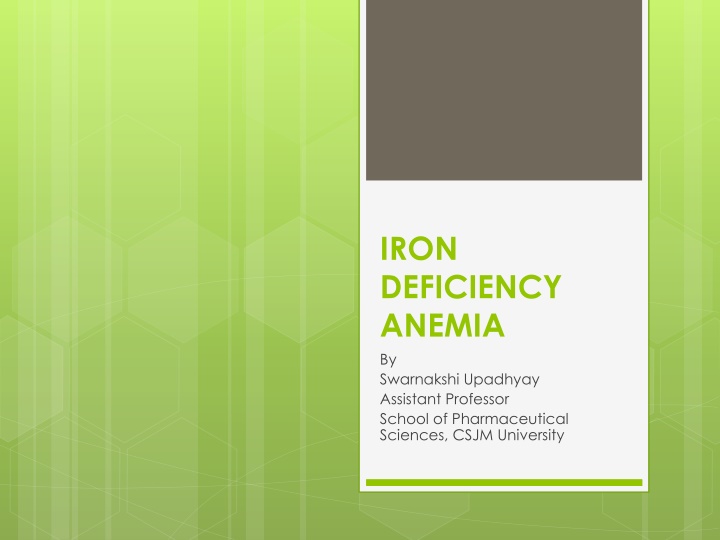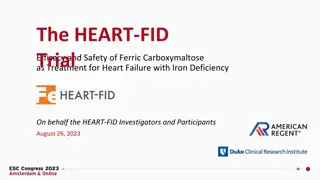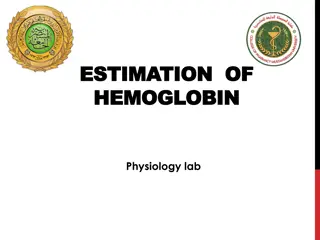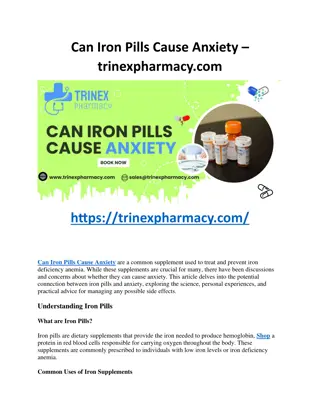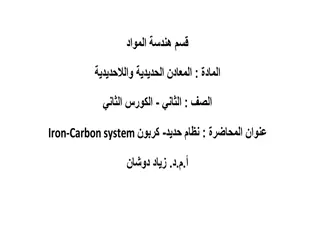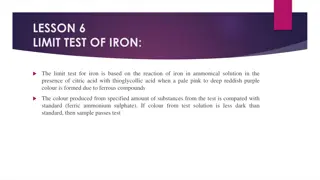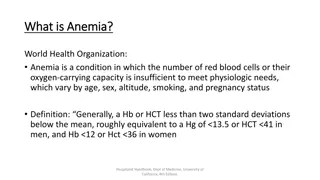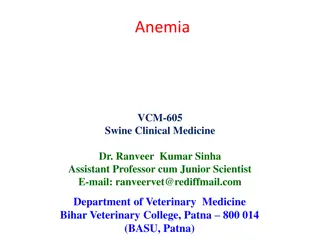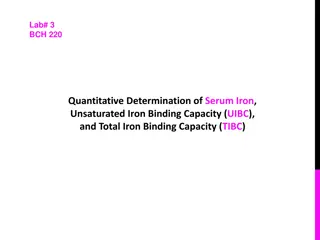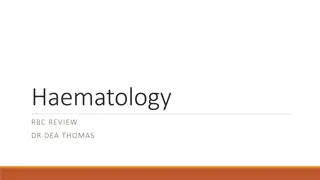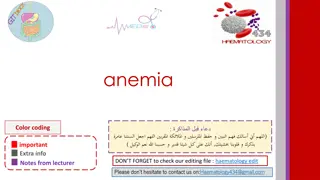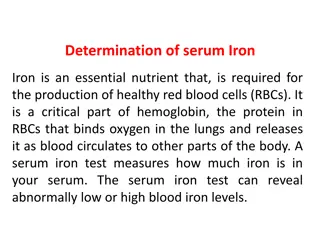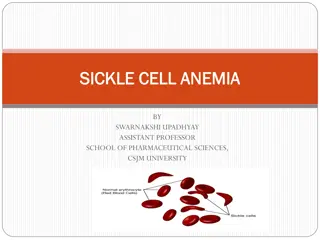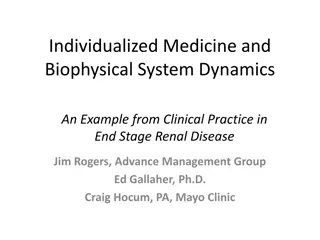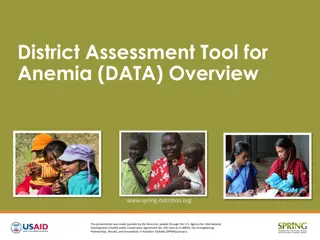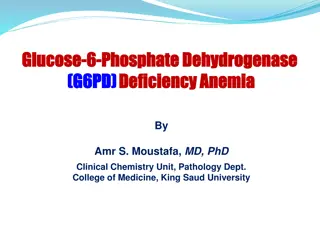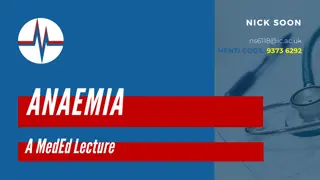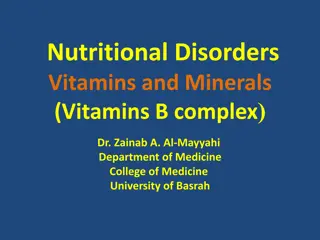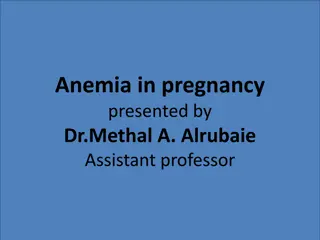Iron Deficiency Anemia: Causes, Symptoms, and Risk Factors
Anemia occurs due to decreased hemoglobin levels in red blood cells, with iron-deficiency anemia being the most common type. Symptoms include fatigue, weakness, pale skin, and more. Causes can range from inadequate iron intake to internal bleeding, and risk factors include women of childbearing age, pregnant women, and individuals with poor diets. Complications may include rapid heartbeat and pregnancy issues. Explore the pathophysiology of iron deficiency anemia and understand its impact on health.
Download Presentation

Please find below an Image/Link to download the presentation.
The content on the website is provided AS IS for your information and personal use only. It may not be sold, licensed, or shared on other websites without obtaining consent from the author.If you encounter any issues during the download, it is possible that the publisher has removed the file from their server.
You are allowed to download the files provided on this website for personal or commercial use, subject to the condition that they are used lawfully. All files are the property of their respective owners.
The content on the website is provided AS IS for your information and personal use only. It may not be sold, licensed, or shared on other websites without obtaining consent from the author.
E N D
Presentation Transcript
IRON DEFICIENCY ANEMIA By Swarnakshi Upadhyay Assistant Professor School of Pharmaceutical Sciences, CSJM University
DEFINITION Anemia occurs when you have a decreased level of hemoglobin in your red blood cells (RBCs). Hemoglobin is the protein in your RBCs that s responsible for carrying oxygen to your tissues. Iron-deficiency anemia is the most common type of anemia. It occurs when your body doesn t have enough iron, which your body needs to make hemoglobin. When there isn t enough iron in your blood, the rest of your body can t get the amount of oxygen it needs.
SYMPTOMS general fatigue weakness pale skin shortness of breath dizziness strange cravings to eat items with no nutritional value a tingling or crawling feeling in the legs tongue swelling or soreness cold hands and feet fast or irregular heartbeat brittle nails headaches
CAUSES Inadequate iron intake Pregnancy or blood loss due to menstruation Internal bleeding Inability to absorb iron Endometriosis Genetics
RISK FACTORS women of childbearing age pregnant women people with poor diets people who donate blood frequently infants and children, especially those born prematurely or experiencing a growth spurt vegetarians who don t replace meat with another iron-rich food teenagers who have a greater need for iron in periods of rapid growth adults over age 65 people exposed to lead in their environment or water high performance and endurance athletes like marathon runners
COMPLICATIONS Rapid or irregular heartbeat Pregnancy complications Delayed growth in infants and children
